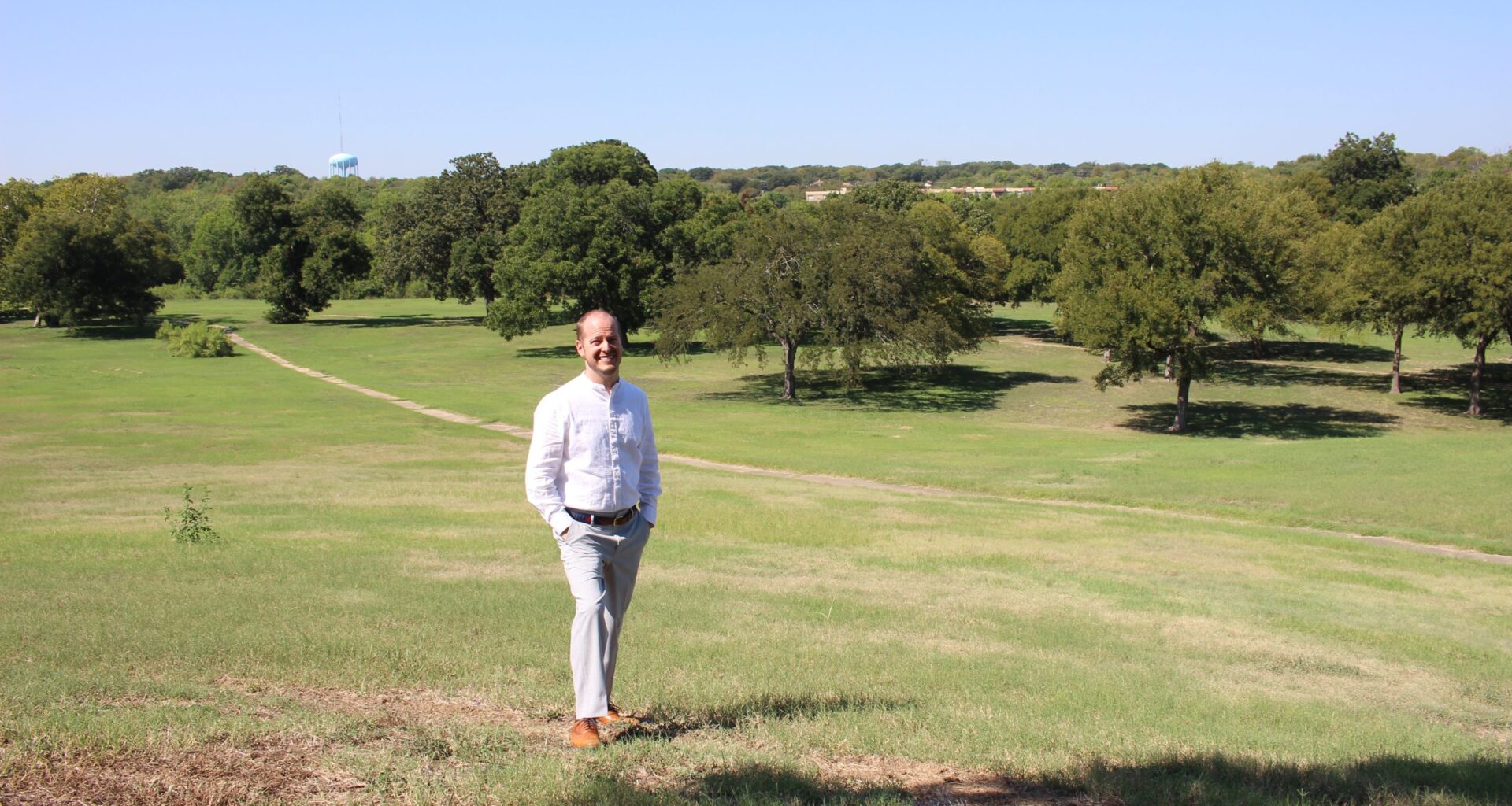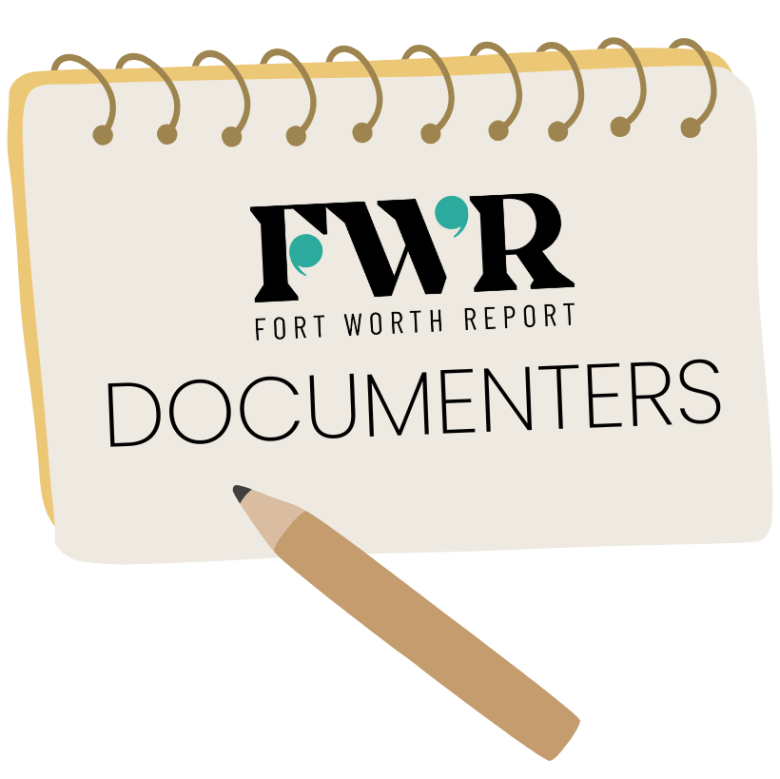Fort Worth city plan commissioners put off — for the second time — their controversial review of the proposed redevelopment of Woodhaven Country Club in east Fort Worth, after hearing concerns from homeowners.
The commissioners were to review the preliminary plat — which lays out the locations of parcels of land, roads and other amenities for Woodhaven — during their Sept. 17 meeting, but residents who live near the defunct country club said they didn’t receive critical information until the night before. Commissioners will take up the case, which they heard for the first time in August, again at their Oct. 1 meeting.
At their latest meeting, commissioners narrowed the number of questions they must address under state law before voting to approve the preliminary plat to one: whether Crescendo Development’s plans for the former country club will have a “material adverse effect” on single-family property values.
As proposed, Crescendo would build 29 single-family detached homes, 28 single-family attached homes and 289 multifamily, low-rise homes. The project also would include multipurpose retail, office and recreational offerings.
Some homeowners worry about new streets that will ferry traffic through the development; Crescendo’s plans to build apartments; and the planned redevelopment of the golf course and its tee boxes, fairways and putting greens, which the homeowners characterize as their “backyards.” Fort Worth City Council members approved using part of the land for apartments early this year.
A few of the commissioners said the redevelopment could plausibly harm existing home values in specific instances in the project, but they appeared skeptical whether that would happen on a broader scale around the neighborhood. Some of the commissioners wondered whether any adverse impact at all was enough to meet the statute’s intention.
Central to the commissioners’ hesitation at both meetings was the availability of information to them and residents.
Will Northern, Crescendo’s developer, turned over studies on traffic and drainage impact — among others — to the city staff prior to the August meeting, but those didn’t make it to commissioners before that meeting.
Documenters empowers people like you to help fill the gaps in reporting on Tarrant County public meetings. Find out how you can join here.
Commissioners then asked for a study on the potential impact on property values. Northern completed and turned it over to the staff before the Sept. 17 meeting. However, some homeowners told commissioners that the city had just turned over a number of records to residents the previous evening; property owners had sought the records.
Heading into the Oct. 1 meeting, the commissioners asked Northern for the identity of the firm that did the study — but didn’t ask for any other information.
One of the commissioners indicated he’d like to see more “collaboration” between Northern and the property owners who oppose the project. Such a discussion would be limited to the placement of lots and amenities, such as streets, given that the City Council already approved land uses.
Commissioners voted 3-2 to continue the case to Oct. 1, after hearing updates and debate for much of the afternoon on Sept. 17.
Commissioner Tye Lamberth voted not to continue the case, suggesting the panel wouldn’t learn anything new by waiting another two weeks.
“It’s so subjective,” he said during the discussion.
The Woodhaven redevelopment has been a very unusual and complex case for the commission, which is unused to controversy.
State law protecting homeowners who live around golf courses threw a big wrinkle into the discussions. Texas bars cities from replatting golf courses unless they’ve first determined that such a plan would have no “material adverse effect” on single-family values.
Commission chairman Don Boren recused himself from the discussion and board vote. Boren is president of the East Fort Worth Business Association, which has endorsed Northern’s plan. Boren, who has served on the commission for years, said he couldn’t remember a more controversial case.
In continuing the case, commissioners didn’t consider two waivers Northern is seeking from city requirements.
In one, Northern wants to exceed the permissible length on four “block faces” — the distance on a street between two intersections or other boundaries.
The proposed development has a lower-than-permissible street “connectivity index” score under the city’s requirements, for which Northern wants a waiver.
Northern recently removed one controversial aspect of the project — a planned connection of a cul de sac at the northern end of Doral Drive to Crescendo’s proposed extension of Country Club Lane through the property.
City staff recommended approving both waivers and the preliminary plat, assuming the commissioners find no projected adverse impact on property values.
Richard McCracken, assistant city attorney, told the commission that the city had met the 15-day public notice requirements for the Sept. 17 meeting and that the information the residents were seeking wasn’t relevant to the notice requirement.
Potential impact on property values
Northern’s report studied what happened to surrounding single-family values after the redevelopment of two Texas golf courses.
Jason Claunch, president of Catalyst Commercial, went over findings at the Sept. 17 meeting.
After reviewing over 100 closed golf courses, the firm studied two redevelopments in detail, although Claunch admitted that no perfect analog to Woodhaven could be found.
The results showed no adverse impact to neighboring property values. In fact, they found evidence that homes adjacent to redevelopments appreciate faster than the broader market, Claunch said.
The study predicts that the Woodhaven project will generate about $168 million in private investment and over 950 jobs in the first 10 years, as well as $15.6 million in sales and property tax revenues for the city.
Six Woodhaven residents spoke in favor of the development, saying it would be for the greater good of the community and that increased street connections in Northern’s plan would be beneficial.
Three residents spoke in opposition. Along with concerns over new homes, apartments and traffic in the established neighborhood, they were concerned whether the developer will follow through on promises made.
The commission found favorably for the development on several questions required by state law before a municipality can approve a replat of a golf course. These included:
- Adequate existing or planned infrastructure to support the future development of the subdivision golf course.
- The development will not have a materially adverse effect on traffic, parking, drainage, water, sewer or other utilities; health, safety or general welfare of persons in the municipality; or safe, orderly and healthful development of the municipality.
(3) The new plat is consistent with all applicable land use regulations and restrictive covenants and the municipality’s land use policies as described by the municipality’s comprehensive plan or other appropriate public policy documents.
The commissioners decided to focus the Oct. 1 meeting on the question of impact on single-family values. They are expected to consider the two waivers and approval of the preliminary plat during that meeting.
Doug Wilhelm is a member of the Fort Worth Report’s Documenters crew.
Senior editor Scott Nishimura contributed to this report.
If you believe anything in these notes is inaccurate, please email us at scott.nishimura@fortworthreport.org with “Correction Request” in the subject line.
Related
Fort Worth Report is certified by the Journalism Trust Initiative for adhering to standards for ethical journalism.
Republish This Story
Republishing is free for noncommercial entities. Commercial entities are prohibited without a licensing agreement. Contact us for details.

